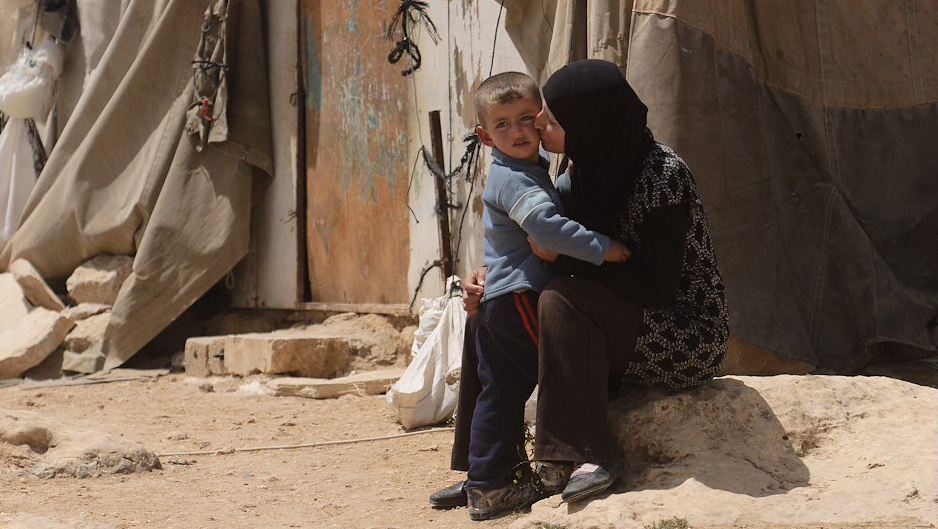Jed Michael, Global Affairs Officer

Creator: Libertinus , Copyright: Creative Commons
Over the last 30 years, conceptual development in the fields of security and development have brought them much closer together, illuminating a ‘Security-Development Nexus’. On the one hand, there has been greater acknowledgement of the importance of ‘Human Security’ – including economic and health security. On the other, there is now widespread acceptance that development is more than just economic growth – Sen’s influential ‘Development as Freedom’ idea being a good example, alongside the New Human Development Index which values health outcomes and education alongside income.
Such conceptual development has been important for the increased understanding of the vicious circle that binds poverty and underdevelopment to conflict and insecurity. Economic vulnerability is often intimately linked with violence. However, an uncritical amalgamation of development and security also poses risks. In particular, evidence from Africa shows that since 9/11 and the Iraq War resources earmarked for developmental purposes have been increasingly diverted towards militaries, with the primacy of international security hindering calls for democracy, which has subsequently eroded in countries receiving high foreign security assistance such as Ethiopia and Rwanda. Whilst militaries have the potential to be providers of security, they also need to be restrained in the name of security – particularly when they wield independent political power.
A related important question, largely unconsidered in the literature, is how to apply the idea of security <-> development to both stateless peoples and to those whose security and development is primarily threatened by the state – often ethnic minorities. Often, such groups are those most in need of both development and security – a cursory glance at the situation in Gaza, or at the wider history of ethnic discrimination, is testament to this.
Up to now, the widening of the security-development nexus has been largely state-centric. One level, common sense recommends this emphasis. In most places, the state is the agent with the greatest capacity to promote or inhibit development, acting as the primary guarantor of both physical security from internal and external threats, and human security through economic and social policy. However, only focusing on the state entails ignoring the security needs of people who cannot rely on their state to provide such security, for two main reasons.
First, the international system as currently constructed does not recognise violence conducted by sub/non-state groups as conceivably legitimate. Given the importance of possessing a monopoly on legitimate violence for providing security, this inhibits the ability of non-state agents to provide security for individuals and groups with security needs unmet by the state. Secondly, stateless people groups are often understood primarily as posing security threats to established nations, such as Israel, rather than as repressed people who are being denied access to security. This further limits the actions they are able to take to increase their security.
The privileging of established states also has important implications for the developmental fortunes of sub/non-state groups. To the extent that security is understood as an essential component for state development only, the destruction of infrastructure in Gaza or the restriction of Palestinian freedoms in the West Bank in the name of security furthers Israeli development rather than inhibiting Palestinian development.
Particularly in light of the recent HAMAS incursion into Israel where atrocious acts of violence were committed, one is right to be cautious in thinking about answers to these questions. Additionally, this is probably not the place for detailed policy proposals. But perhaps there is room for challenging the reification of the state at the intersection of development and security – especially because this process is already occurring in the fields of security and development individually. This may include a reconsideration of what is considered legitimate violence, and definitely must include a greater acknowledgement that whilst the state is a vital agent for promoting both security and development, there are many people who do not experience states as serving these roles. Perhaps then we can begin to consider how to meet the underprovided for security and development needs of stateless peoples and permanent minorities.
If you want to think more about the intersection of development and security, I recommend Rita Abrahamsen’s ‘Return of the generals? Global militarism in Africa from the Cold War to the present’ which deals with how changing ideas about development have influenced the role of militaries. I would also encourage you to read Amartya Sen’s ‘Development as Freedom’, which is useful for understanding development in broad terms, and thus why it is so closely linked to issues of security. Finally, Barkawi and Laffey’s ‘The Postcolonial Moment in Security Studies’ is an eye-opening account of how, when we think about security, we often privilege already powerful actors like Western states.
